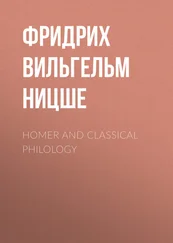Фридрих Ницше - Beyond Good and Evil
Здесь есть возможность читать онлайн «Фридрих Ницше - Beyond Good and Evil» весь текст электронной книги совершенно бесплатно (целиком полную версию без сокращений). В некоторых случаях можно слушать аудио, скачать через торрент в формате fb2 и присутствует краткое содержание. Год выпуска: 2014, Издательство: epubBooks Classics, Жанр: Философия, на английском языке. Описание произведения, (предисловие) а так же отзывы посетителей доступны на портале библиотеки ЛибКат.
- Название:Beyond Good and Evil
- Автор:
- Издательство:epubBooks Classics
- Жанр:
- Год:2014
- ISBN:нет данных
- Рейтинг книги:4 / 5. Голосов: 1
-
Избранное:Добавить в избранное
- Отзывы:
-
Ваша оценка:
- 80
- 1
- 2
- 3
- 4
- 5
Beyond Good and Evil: краткое содержание, описание и аннотация
Предлагаем к чтению аннотацию, описание, краткое содержание или предисловие (зависит от того, что написал сам автор книги «Beyond Good and Evil»). Если вы не нашли необходимую информацию о книге — напишите в комментариях, мы постараемся отыскать её.
Beyond Good and Evil — читать онлайн бесплатно полную книгу (весь текст) целиком
Ниже представлен текст книги, разбитый по страницам. Система сохранения места последней прочитанной страницы, позволяет с удобством читать онлайн бесплатно книгу «Beyond Good and Evil», без необходимости каждый раз заново искать на чём Вы остановились. Поставьте закладку, и сможете в любой момент перейти на страницу, на которой закончили чтение.
Интервал:
Закладка:
248. There are two kinds of geniuses: one which above all engenders and seeks to engender, and another which willingly lets itself be fructified and brings forth. And similarly, among the gifted nations, there are those on whom the woman's problem of pregnancy has devolved, and the secret task of forming, maturing, and perfecting—the Greeks, for instance, were a nation of this kind, and so are the French; and others which have to fructify and become the cause of new modes of life—like the Jews, the Romans, and, in all modesty be it asked: like the Germans?—nations tortured and enraptured by unknown fevers and irresistibly forced out of themselves, amorous and longing for foreign races (for such as "let themselves be fructified"), and withal imperious, like everything conscious of being full of generative force, and consequently empowered "by the grace of God." These two kinds of geniuses seek each other like man and woman; but they also misunderstand each other—like man and woman.
249. Every nation has its own "Tartuffery," and calls that its virtue.—One does not know—cannot know, the best that is in one.
250. What Europe owes to the Jews?—Many things, good and bad, and above all one thing of the nature both of the best and the worst: the grand style in morality, the fearfulness and majesty of infinite demands, of infinite significations, the whole Romanticism and sublimity of moral questionableness—and consequently just the most attractive, ensnaring, and exquisite element in those iridescences and allurements to life, in the aftersheen of which the sky of our European culture, its evening sky, now glows—perhaps glows out. For this, we artists among the spectators and philosophers, are—grateful to the Jews.
251. It must be taken into the bargain, if various clouds and disturbances—in short, slight attacks of stupidity—pass over the spirit of a people that suffers and WANTS to suffer from national nervous fever and political ambition: for instance, among present–day Germans there is alternately the anti–French folly, the anti–Semitic folly, the anti–Polish folly, the Christian–romantic folly, the Wagnerian folly, the Teutonic folly, the Prussian folly (just look at those poor historians, the Sybels and Treitschkes, and their closely bandaged heads), and whatever else these little obscurations of the German spirit and conscience may be called. May it be forgiven me that I, too, when on a short daring sojourn on very infected ground, did not remain wholly exempt from the disease, but like every one else, began to entertain thoughts about matters which did not concern me—the first symptom of political infection. About the Jews, for instance, listen to the following:—I have never yet met a German who was favourably inclined to the Jews; and however decided the repudiation of actual anti–Semitism may be on the part of all prudent and political men, this prudence and policy is not perhaps directed against the nature of the sentiment itself, but only against its dangerous excess, and especially against the distasteful and infamous expression of this excess of sentiment;—on this point we must not deceive ourselves. That Germany has amply SUFFICIENT Jews, that the German stomach, the German blood, has difficulty (and will long have difficulty) in disposing only of this quantity of "Jew"—as the Italian, the Frenchman, and the Englishman have done by means of a stronger digestion:—that is the unmistakable declaration and language of a general instinct, to which one must listen and according to which one must act. "Let no more Jews come in! And shut the doors, especially towards the East (also towards Austria)!"—thus commands the instinct of a people whose nature is still feeble and uncertain, so that it could be easily wiped out, easily extinguished, by a stronger race. The Jews, however, are beyond all doubt the strongest, toughest, and purest race at present living in Europe, they know how to succeed even under the worst conditions (in fact better than under favourable ones), by means of virtues of some sort, which one would like nowadays to label as vices—owing above all to a resolute faith which does not need to be ashamed before "modern ideas", they alter only, WHEN they do alter, in the same way that the Russian Empire makes its conquest—as an empire that has plenty of time and is not of yesterday—namely, according to the principle, "as slowly as possible"! A thinker who has the future of Europe at heart, will, in all his perspectives concerning the future, calculate upon the Jews, as he will calculate upon the Russians, as above all the surest and likeliest factors in the great play and battle of forces. That which is at present called a "nation" in Europe, and is really rather a RES FACTA than NATA (indeed, sometimes confusingly similar to a RES FICTA ET PICTA), is in every case something evolving, young, easily displaced, and not yet a race, much less such a race AERE PERENNUS, as the Jews are such "nations" should most carefully avoid all hot–headed rivalry and hostility! It is certain that the Jews, if they desired—or if they were driven to it, as the anti–Semites seem to wish—COULD now have the ascendancy, nay, literally the supremacy, over Europe, that they are NOT working and planning for that end is equally certain. Meanwhile, they rather wish and desire, even somewhat importunely, to be insorbed and absorbed by Europe, they long to be finally settled, authorized, and respected somewhere, and wish to put an end to the nomadic life, to the "wandering Jew",—and one should certainly take account of this impulse and tendency, and MAKE ADVANCES to it (it possibly betokens a mitigation of the Jewish instincts) for which purpose it would perhaps be useful and fair to banish the anti–Semitic bawlers out of the country. One should make advances with all prudence, and with selection, pretty much as the English nobility do It stands to reason that the more powerful and strongly marked types of new Germanism could enter into relation with the Jews with the least hesitation, for instance, the nobleman officer from the Prussian border it would be interesting in many ways to see whether the genius for money and patience (and especially some intellect and intellectuality—sadly lacking in the place referred to) could not in addition be annexed and trained to the hereditary art of commanding and obeying—for both of which the country in question has now a classic reputation But here it is expedient to break off my festal discourse and my sprightly Teutonomania for I have already reached my SERIOUS TOPIC, the "European problem," as I understand it, the rearing of a new ruling caste for Europe.
252. They are not a philosophical race—the English: Bacon represents an ATTACK on the philosophical spirit generally, Hobbes, Hume, and Locke, an abasement, and a depreciation of the idea of a "philosopher" for more than a century. It was AGAINST Hume that Kant uprose and raised himself; it was Locke of whom Schelling RIGHTLY said, "JE MEPRISE LOCKE"; in the struggle against the English mechanical stultification of the world, Hegel and Schopenhauer (along with Goethe) were of one accord; the two hostile brother–geniuses in philosophy, who pushed in different directions towards the opposite poles of German thought, and thereby wronged each other as only brothers will do.—What is lacking in England, and has always been lacking, that half–actor and rhetorician knew well enough, the absurd muddle–head, Carlyle, who sought to conceal under passionate grimaces what he knew about himself: namely, what was LACKING in Carlyle—real POWER of intellect, real DEPTH of intellectual perception, in short, philosophy. It is characteristic of such an unphilosophical race to hold on firmly to Christianity—they NEED its discipline for "moralizing" and humanizing. The Englishman, more gloomy, sensual, headstrong, and brutal than the German—is for that very reason, as the baser of the two, also the most pious: he has all the MORE NEED of Christianity. To finer nostrils, this English Christianity itself has still a characteristic English taint of spleen and alcoholic excess, for which, owing to good reasons, it is used as an antidote—the finer poison to neutralize the coarser: a finer form of poisoning is in fact a step in advance with coarse–mannered people, a step towards spiritualization. The English coarseness and rustic demureness is still most satisfactorily disguised by Christian pantomime, and by praying and psalm–singing (or, more correctly, it is thereby explained and differently expressed); and for the herd of drunkards and rakes who formerly learned moral grunting under the influence of Methodism (and more recently as the "Salvation Army"), a penitential fit may really be the relatively highest manifestation of "humanity" to which they can be elevated: so much may reasonably be admitted. That, however, which offends even in the humanest Englishman is his lack of music, to speak figuratively (and also literally): he has neither rhythm nor dance in the movements of his soul and body; indeed, not even the desire for rhythm and dance, for "music." Listen to him speaking; look at the most beautiful Englishwoman WALKING—in no country on earth are there more beautiful doves and swans; finally, listen to them singing! But I ask too much…
Читать дальшеИнтервал:
Закладка:
Похожие книги на «Beyond Good and Evil»
Представляем Вашему вниманию похожие книги на «Beyond Good and Evil» списком для выбора. Мы отобрали схожую по названию и смыслу литературу в надежде предоставить читателям больше вариантов отыскать новые, интересные, ещё непрочитанные произведения.
Обсуждение, отзывы о книге «Beyond Good and Evil» и просто собственные мнения читателей. Оставьте ваши комментарии, напишите, что Вы думаете о произведении, его смысле или главных героях. Укажите что конкретно понравилось, а что нет, и почему Вы так считаете.












